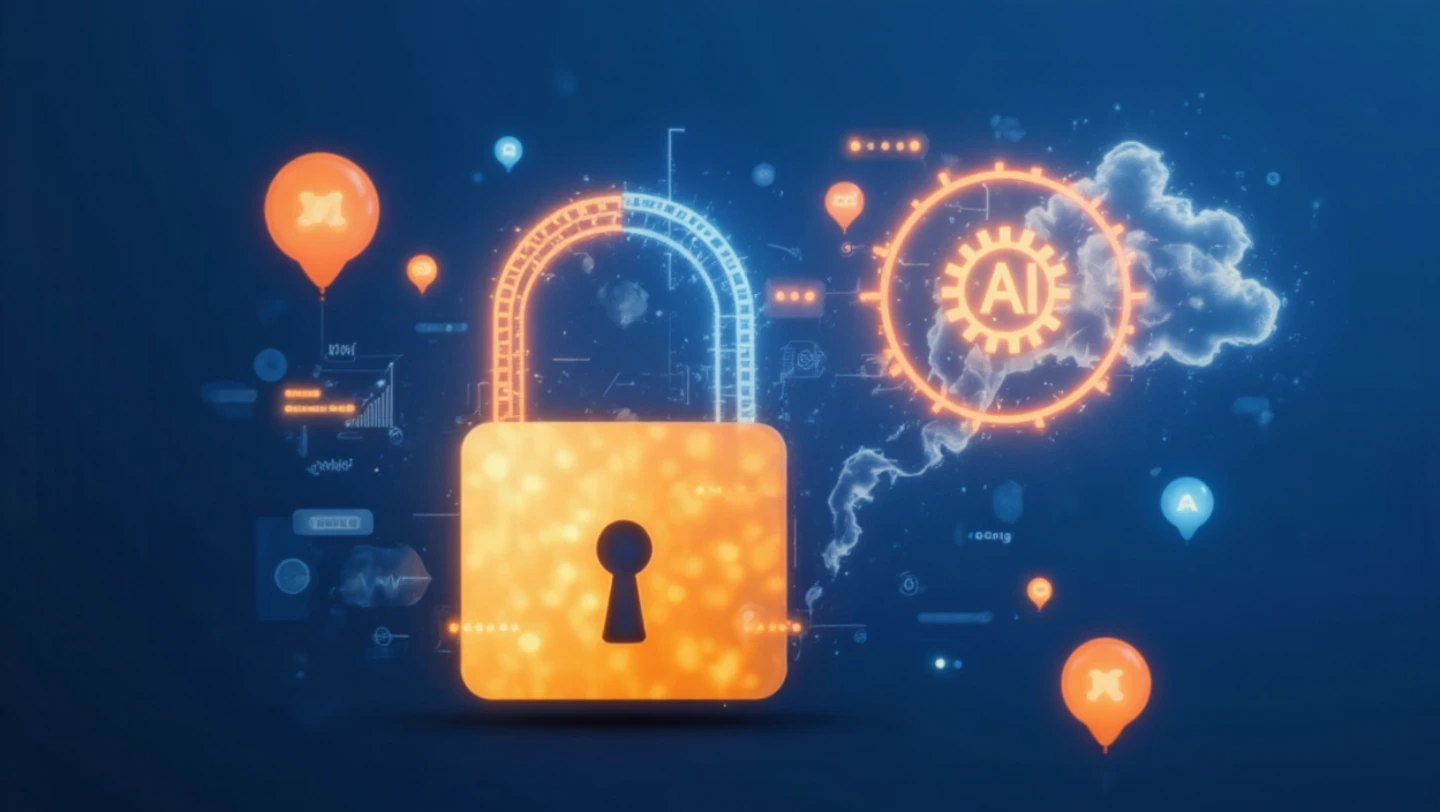ChatGPT has revolutionized how people interact with artificial intelligence, processing millions of conversations daily. However, understanding what 5 things you should never tell ChatGPT becomes crucial for protecting your privacy and security. While this AI assistant offers remarkable capabilities, sharing certain information can expose users to significant risks including data breaches, identity theft, and privacy violations.
The reality is that any information entered into ChatGPT should be considered potentially public. OpenAI's privacy policy clearly states that user data may be used for model training and reviewed by human moderators. This means your conversations aren't guaranteed to remain private forever.
1. Personal Identification Information (PII)
Chatgpt protect personal information measures don't extend to user-shared data, making personal identification information extremely vulnerable. Never share your Social Security number, driver's license details, passport information, or full residential address with ChatGPT.
Identity thieves actively seek this type of information to commit fraud. When you provide personal details to AI systems, you're essentially broadcasting sensitive data that could be:
- Stored indefinitely in training databases
- Accessed by unauthorized individuals during security breaches
- Accidentally exposed in responses to other users
- Used to build detailed profiles for malicious purposes
Key Protection Tips:
- Use generic examples instead of real personal details
- Avoid uploading documents containing identifying information
- Never share birthdates, phone numbers, or home addresses
- Consider using fictional scenarios when seeking advice

2. Financial Information
Chatgpt financial security concerns should prevent you from ever sharing banking details, credit card numbers, account passwords, or investment information. Financial institutions invest heavily in encryption and security protocols that AI chatbots simply don't provide.
The consequences of financial data exposure can be devastating. Cybercriminals who gain access to banking information can:
- Initiate unauthorized transactions
- Apply for credit cards or loans in your name
- Access investment accounts and transfer funds
- Sell your financial data on dark web marketplaces
Best Practices for Financial Safety:
- Use secure banking apps and websites exclusively
- Never ask ChatGPT to interpret bank statements
- Avoid discussing specific account balances or transactions
- Keep financial planning discussions general without actual numbers
3. Password
Is it safe to share passwords with chatgpt represents one of the most dangerous security questions users face. The answer is definitively no. Login credentials serve as digital keys to your entire online identity, and sharing them with AI systems creates massive security vulnerabilities.
Password managers exist specifically to handle credential security through encryption and secure storage. ChatGPT lacks these protective measures, making any shared passwords potentially accessible to:
- OpenAI employees conducting content reviews
- Hackers who breach AI system databases
- Other users through accidental data exposure
- Automated systems that process conversation data
Password Protection Strategies:
- Use dedicated password managers for credential storage
- Enable two-factor authentication on all important accounts
- Create unique, strong passwords for each service
- Never discuss account access methods with AI systems
4. Medical Information
Chatgpt medical information risk extends beyond personal privacy into legal and professional consequences. Healthcare information enjoys special protection under laws like HIPAA, but AI chatbots don't provide equivalent confidentiality safeguards.
Medical data shared with ChatGPT could potentially be used to:
- Discriminate against individuals in employment or insurance
- Create detailed health profiles for commercial exploitation
- Expose sensitive conditions to unauthorized parties
- Violate professional confidentiality obligations
Healthcare professionals face particularly severe risks when discussing patient information with AI systems, potentially triggering:
Medical Information Safety Guidelines:
- Consult licensed healthcare providers for medical advice
- Use general symptoms rather than specific diagnoses
- Avoid uploading medical records or test results
- Never share patient information if you're a healthcare worker

5. Proprietary Business Information
Chatgpt business confidentiality concerns have led many companies to ban employee use of public AI systems. Trade secrets, client information, strategic plans, and proprietary processes shared with ChatGPT can compromise competitive advantages and violate legal obligations.
Samsung employees famously leaked sensitive information through ChatGPT usage, highlighting how easily confidential business data can be exposed. The risks include:
- Competitor access to strategic information
- Violation of non-disclosure agreements
- Loss of intellectual property protection
- Potential legal action from affected parties
Business Information Protection:
- Use enterprise AI solutions with proper security controls
- Implement company policies regarding AI usage
- Train employees on data confidentiality requirements
- Consider generic scenarios instead of actual business cases
FAQs
Q1: Is ChatGPT safe for sensitive information?
A1: No, ChatGPT is not safe for sensitive information. Any data entered may be used for training, reviewed by humans, or potentially exposed in system breaches.
Q2: Who can access my ChatGPT conversations?
A2: OpenAI employees may review conversations for safety compliance, and data could be accessed during security breaches or used in model training processes.
Q3: Does ChatGPT share your data with third parties?
A3: While OpenAI doesn't directly sell data, conversations may be used for model training and could potentially be exposed through security incidents or system vulnerabilities.
Q4: What are the main ChatGPT privacy risks?
A4: Key risks include data breaches, identity theft, financial fraud, medical discrimination, and business confidentiality violations from shared sensitive information.
Q5: How can I protect my personal information when using ChatGPT?
A5: Use generic examples, avoid real personal details, delete conversations immediately, enable two-factor authentication, and treat all interactions as potentially public.
Conclusion: Understanding ChatGPT's Data Handling Practices
Does chatgpt share your data remains a critical question that affects all user interactions. OpenAI's current practices include using conversation data for model improvement, human review for safety compliance, and potential long-term storage in training databases.
The Stanford Institute for Human-Centered Artificial Intelligence warns that users "lose possession" of information once entered into chatbots. This reality means that even deleted conversations may persist in some form within AI systems.
From June 2022 to May 2023, over 100,000 OpenAI ChatGPT account credentials were compromised and sold on dark web marketplaces, demonstrating that even AI companies face significant security challenges.
Data Protection Recommendations:
- Assume all shared information could become public
- Delete conversations immediately after completion
- Use strong passwords and multi-factor authentication
- Regularly review and update privacy settings
The key to safe AI usage lies in treating these systems as public forums rather than private consultants. While ChatGPT offers remarkable capabilities for creativity, learning, and problem-solving, maintaining awareness of these 5 things you should never tell ChatGPT ensures that users can enjoy AI benefits without compromising their security, privacy, or professional obligations. Remember that protecting sensitive information requires constant vigilance in our increasingly connected digital world.
 Submit Your AI Tool For FREE!Showcase Your Innovation To Thousands Of AI Enthusiasts!
Submit Your AI Tool For FREE!Showcase Your Innovation To Thousands Of AI Enthusiasts! Submit Your AI Tool For FREE!Showcase Your Innovation To Thousands Of AI Enthusiasts!
Submit Your AI Tool For FREE!Showcase Your Innovation To Thousands Of AI Enthusiasts! Submit Your AI Tool For FREE!Showcase Your Innovation To Thousands Of AI Enthusiasts!
Submit Your AI Tool For FREE!Showcase Your Innovation To Thousands Of AI Enthusiasts! Submit Your AI Tool For FREE!Showcase Your Innovation To Thousands Of AI Enthusiasts!
Submit Your AI Tool For FREE!Showcase Your Innovation To Thousands Of AI Enthusiasts! Submit Your AI Tool For FREE!Showcase Your Innovation To Thousands Of AI Enthusiasts!
Submit Your AI Tool For FREE!Showcase Your Innovation To Thousands Of AI Enthusiasts!





No comments yet. Be the first to comment!